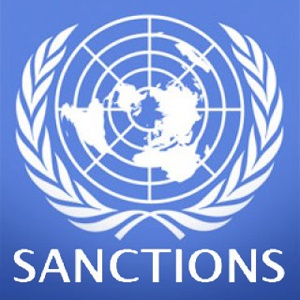
Sanctions are a common tool for seeking to influence foreign governments and individuals to change their behaviour. The United Nations Security Council (UNSC) can impose sanctions in response to a threat to international peace and security.
As a UN Member State, New Zealand is bound by the UNSC's decisions. We implement sanctions imposed by the UNSC in regulations made under the United Nations Act 1946. Implementing UN sanctions by creating regulations means that we can respond quickly when necessary to impose or remove sanctions.
In addition to implementing UN sanctions, New Zealand has standalone legislation to impose sanctions independent of the UNSC in response to military actions by Russia (and others) in Ukraine or any other country, in circumstances where the UNSC is unlikely to act. New Zealand’s Russia sanctions are aligned with those imposed by like-minded countries and aim to exert pressure on Russia to change its course and to limit its ability to finance and equip the war on Ukraine. Read more about New Zealand’s Russia sanctions.
New Zealand can also impose other measures such as travel bans on people entering our country. Examples include travel bans on individuals associated with the Lukashenko regime in Belarus which were introduced following the 2020 Belarus election, and travel bans imposed on Myanmar’s military leaders in response to the 2021 coup.
New Zealanders must comply
New Zealanders must fully comply with the regulations that implement UN sanctions. A breach of the sanctions regulations is a criminal offence. Given the wide scope of the regulations, and the penalties for non-compliance, it's essential that anyone contemplating doing business with sanctioned countries obtains independent legal advice first.
This guidance does not constitute legal advice. MFAT accepts no liability for any loss or damage caused to any person relying on this information.
Current UN sanctions
New Zealand currently has regulations implementing the following UN sanctions regimes:
| 2018 | |
| 2017 | North Korea |
| 2016 | Iran Find out about special requirements when doing business with Iran |
| 2015 | |
| 2014 | |
| 2012 | Guinea-Bissau |
| 2011 | Libya |
| 2010 | Eritrea |
| 2008 | Lebanon |
| 2007 | Al Qaida and Taliban |
| 2004 | |
| 2003 | Iraq reconstruction(external link) |
| 1991 | Iraq |
Export controls
Even if you are permitted under sanctions regulations to export to a particular country, you may still need to obtain separate approval to export goods that are strategic goods or that are subject to catch-all controls under the New Zealand Export Controls regime.
For more information on Export controls, see the Trading Weapons and Controlled Chemicals page.

